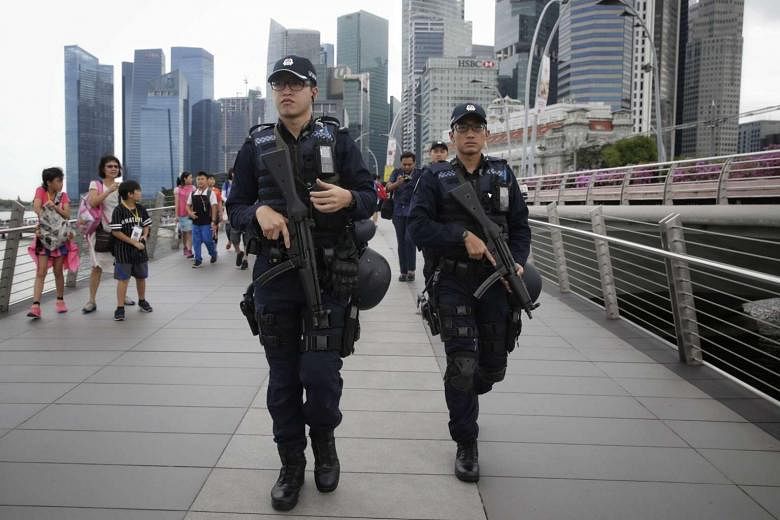Organisers of large-scale public events are required to inform the police at least 28 days before they are held, under a new law passed by Parliament yesterday.
The organisers also have to put in place stringent security measures the police deem necessary.
The event can be cancelled, postponed or moved to other venues if the security is severely inadequate or a terror threat is imminent.
These are among the wide-ranging powers accorded to the police by the amended Public Order Act, in a move to better protect Singaporeans at a time when the terror threat is at its highest in the region and terror groups are going for soft targets such as concerts and football matches.
Home Affairs Minister K. Shanmugam, in launching the two-hour debate on the changes, noted that the police now work with event organisers on a voluntary basis on such security measures.
While most organisers are cooperative, "the time has come to give the police the powers to require such measures", he said.
Hence, it is mandatory for organisers to consult the police on security needs for public events that draw crowds of more than 5,000, and private events where the crowd size is projected to exceed 10,000.
The police will make an assessment, following which the commissioner of police can declare the event a "special event" if there is a risk of a terror attack or public order incident. The organisers will then be directed to put in place security measures, said Mr Shanmugam.
The measures include placing anti-vehicle barricades, engaging armed auxiliary police officers and carrying out bag checks on those attending.
Organisers that fail to notify the police if they expect large crowdscan be fined up to $20,000, jailed for up to a year, or given both punishments.
Noting how terrorists are focusing more on "soft targets", such as in the Nice truck attack during the French national day celebrations last July, Mr Shanmugam said: "When there is a risk of a potential terrorist attack at an event... it's really in the public interest that the Government does something about it, that the necessary security measures are taken. Otherwise, we are putting lives at risk."
About 200 public events attracting crowds of 5,000 or more are held in Singapore each year, with many of these security measures in place, he said. The changes will raise costs for event organisers. But it is a cost that terrorists have imposed on the whole of society, and which the Government and taxpayers are already paying, he added.
The changes to the Act also give the police commissioner the power to reject applications for public assemblies and processions involving foreigners with a political agenda.
Nominated MP Kok Heng Leun argued that the change could stifle political discourse as public forums with foreign experts could fall within its ambit.
Mr Shanmugam said events will be assessed on a case-by-case basis.
"The Government's position has always been that foreigners and foreign entities should not import their politics into Singapore nor should they interfere in our domestic politics, especially on issues of a political or controversial nature," he said.
SEE TOP OF THE NEWS, HOME


